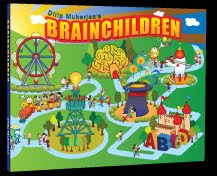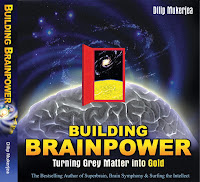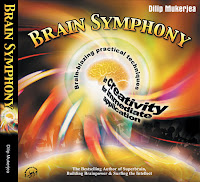The following useful information came to me via an email subscription from Sara Childre, President, Institute of HeartMath, USA:
It’s harder for many people to get a good night’s sleep in these times. You probably have heard the statistics. Sleeplessness affects all age groups. The U.S. Department of Health and Human Services reports that about 60 million Americans suffer from insomnia each year.
The National Sleep Foundation reports that disordered sleep – difficulty falling asleep, light sleep or non-restorative sleep for several nights or more weekly – affects nearly two-thirds of American adults at some point.
Not enough sleep affects quality of life – emotional well-being, mental clarity, communications, performance at work or elsewhere, even our sense of connection to our authentic self – and ultimately our long-term health.
Stress is a leading cause of abnormal sleep patterns. For many of us, worries and concerns we’ve been pushing aside finally get their time to play out on the stage of our minds without distraction at night. Then we get anxious about not sleeping, which only makes it harder to sleep the next night.
Anxiety releases adrenaline which prompts body and mind into action – the opposite of what we need for sleeping. It’s a catch-22. But the result is usually the same.
You are foggy or exhausted the next day. Maybe you keep yourself alert with coffee, sugar or other stimulants, but then you crash and drag around. Many of us have tried a lot of the remedies and still often find ourselves lying awake a good part of the night. What are we to do?
If any of this describes you or someone you care about, there is a place about one to two feet under your nose (depending on how tall you are) that you may not have looked for a remedy. That place is your heart.
How Your Heart Can Help You Sleep Better
Tip 1: Reset your inner rhythm.
Your heart beats in a rhythm. When you are worried, anxious, stressed or overstimulated, that rhythm becomes irregular. The more stressed you are, the more chaotic your heart rhythm becomes.
So what makes the heart rhythm smooth out quickly?
It’s sincere positive feelings, like: love, care, gratitude, appreciation, compassion, kindness, peace and ease. These feelings not only feel soothing and good, but they are good for you. They bring a smooth order to your heart rhythms, reduce cortisol (the stress hormone) to help you sleep more soundly and increase DHEA (the vitality hormone) so you wake up more refreshed.
You can see in the picture below how jagged the heart rhythm pattern is when you’re anxious or frustrated and how smooth and sine-wave like (coherent) it becomes when you’re bathing in a positive feeling.
Both of the above graphs are of the same person feeling anxiety then using a heart technique to shift to a positive feeling and their heart rhythm pattern changed within a period of a few minutes!
What’s even more important for the sleep deprived is that scientists have found that this smooth, coherent rhythm is the pattern your heart rhythm naturally goes into during deep restful sleep.
So why not give it some help? Here’s what you can do:
When you close your eyes at night, tell yourself you aren’t going to overdramatize your concerns about sleeping.
Then do this heart-focused technique we call Attitude Breathing to help you create the coherent rhythmic pattern that can facilitate deeper and more effective sleep: Gently breathe an attitude of calm, ease and relaxation for a minute or two.
When relaxed, breathe an attitude of appreciation, gratitude or love for someone or something – a pet, a time in nature, etc.
Do this for a few minutes or more to activate coherent heart rhythms and release beneficial hormones to reduce stress and restore your system.
Tip 2: Have you ever noticed what happens when you go to bed without resolving a real or imagined conflict with someone?
Your mind won’t stop rehashing what you could have or should have said. Your heart can help. Here’s how:
If you can, communicate with the other person, even by phone, before you go to bed. With a caring open-heartedness and latitude, try to work it out.
First ask yourself if there’s something you need to correct within yourself to help the situation.
Apologize if you need to and listen from your heart with an attitude of genuine care.
Ask questions to sincerely understand where he/she was coming from, even if you think you know. If you can’t reach the person, talk about the problem with someone who won’t automatically take your side and may provide another point of view. Then talk to the person as soon as you can. Don’t chicken out.
Even if the situation doesn’t resolve right away, you can release yourself more knowing that you tried.
Breathing the attitude of self-compassion (using Tip 1) has helped many people in "hard-to-resolve" situations.
Tip 3: Realize that emotional reactions during the day can affect how you sleep at night.
If you allow stress to build-up during the day, it throws off your body’s rhythms and can lead to overload, headaches, backaches, indigestion, energy drain and more.
Your heart generates the strongest rhythmic pattern in the body, and your brain and nervous system entrain to your heart’s rhythm whether coherent or incoherent.
Shifting your heart into a smooth coherent rhythm a couple times during the day helps release stress as you go and resets your body’s rhythms for better sleep at night.
Here’s how:
Take a coherence break in-between activities, at your desk or anywhere.
Shift your attention to your heart (look at picture of a loved one, remember a favorite pet, or recall a time in nature) and feel appreciation or gratitude.
It’s important that the appreciation be heartfelt (not just from your mind) to activate heart coherence and the hormones that help bring harmony and stability to your mental and emotional nature.
Breathe a true feeling or attitude of appreciation through the area of your heart for a minute or two (without mentally multi-tasking as you do this).
Taking a coherence break also increases balance and resilience, and it helps you listen to your heart’s intuitive guidance on what else you need to do to release stress or prevent stress build-up.
It may take several days using these tips for your sleep rhythms to reset if they’ve been out of whack for a while. Even if you don’t sleep like a baby the first night, you will start to accrue benefits from the practice.
To speed up the process, practice the Quick Coherence® Technique several times during the day to reduce the stress that’s keeping you awake at night. You’ll learn to relieve worry, fatigue and tension.
Improve your emotional, mental and physical balance during the day so you’re prepared for restful sleep at night.
Or you might want to try the emWave2 solution for Better Sleep, a heart rhythm coherence trainer technology to watch in real-time when your heart rhythms shift into that smooth coherent state and a booklet of personal stories and instructions will help you sleep more peacefully more often.
[More information about the exemplary research work at the Institute of HeartMath, and access to their Research Library, can be found respectively at this link and/or this link.
Throughout the nineties, while my small but unique retail store, aptly called 'The Brain Resource', was in operation at the periphery of the Central Business District of Singapore, I often carried many of their books, audios/videos, and other resources.]
Subscribe to:
Post Comments (Atom)

















No comments:
Post a Comment